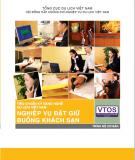Tài liệu Thư viện số
- Công nghệ thông tin (2019 )
- Điện tử viễn thông (1133 )
- Quản trị kinh doanh (1305 )
- Kế toán (1003 )
- Môi trường (968 )
- Du lịch (861 )
- Kiến trúc (424 )
- Xây dựng (1082 )
- Ngoại ngữ (302 )
- Y dược (1391 )
- Khoa học tự nhiên (874 )
- Khoa học xã hội (514 )
- Lý luận chính trị (573 )
- Sau đại học (243 )
- Tài liệu tham khảo khác (252 )
Danh mục TaiLieu.VN
- Mẫu Slide Powerpoint
- Luận Văn - Báo Cáo (344720)
- Kinh Doanh Marketing (65512)
- Kinh Tế - Quản Lý (48934)
- Tài Chính - Ngân Hàng (55898)
- Công Nghệ Thông Tin (142209)
- Tiếng Anh - Ngoại Ngữ (47066)
- Kỹ Thuật - Công Nghệ (134345)
- Khoa Học Tự Nhiên (107174)
- Khoa Học Xã Hội (82451)
- Văn Hoá - Nghệ Thuật (54408)
- Y Tế - Sức Khoẻ (173915)
- Nông - Lâm - Ngư (62504)
- Kỹ Năng Mềm (29016)
- Biểu Mẫu - Văn Bản (27610)
- Giải Trí - Thư Giãn (51994)
- Văn Bản Luật (198854)
- Tài Liệu Phổ Thông (402015)
- Trắc Nghiệm Online (213578)
- Trắc Nghiệm MBTI
- Trắc Nghiệm Holland
Tài liệu nổi bật
Kết quả 973-984 trong khoảng 12960
-
Lecture Fundamental accounting principles (21e) - Chapter 10: Plant assets, natural resources, and intangibles. After completing this chapter you should be able to: Describe merchandising activities and identify income components for a merchandising company, identify and explain the inventory asset and cost flows of a merchandising company, compute the acid-test ratio and explain its use to assess liquidity,...
48 p dtu 23/09/2023 23 0
-
Lecture Fundamental accounting principles (21e) - Chapter 11: Current liabilities and payroll accounting. After completing this chapter you should be able to: Identify the items making up merchandise inventory, identify the costs of merchandise inventory, analyze the effects of inventory methods for both financial and tax reporting, analyze the effects of inventory errors on current and future financial statements,...
38 p dtu 23/09/2023 23 0
-
Lecture Fundamental accounting principles (21e) - Chapter 13: Accounting for corporations
Lecture Fundamental accounting principles (21e) - Chapter 13: Accounting for corporations. After completing this chapter you should be able to: Define internal control and identify its purpose and principles, define cash and cash equivalents and explain how to report them, compute the days’ sales uncollected ratio and use it to assess liquidity.
43 p dtu 23/09/2023 28 0
-
Lecture Fundamental accounting principles (21e) - Chapter 9: Accounting for receivables
Lecture Fundamental accounting principles (21e) - Chapter 9: Accounting for receivables. After completing this chapter you should be able to: Describe merchandising activities and identify income components for a merchandising company, identify and explain the inventory asset and cost flows of a merchandising company, compute the acid-test ratio and explain its use to assess liquidity,...
39 p dtu 23/09/2023 24 0
-
Lecture Fundamental accounting principles (21e) - Chapter 7: Accounting information systems
Lecture Fundamental accounting principles (21e) - Chapter 7: Accounting information systems. After completing this chapter you should be able to: Explain the steps in processing transactions and the role of source documents, describe an account and its use in recording transactions, describe a ledger and a chart of accounts, define debits and credits and explain double-entry accounting.
26 p dtu 23/09/2023 26 0
-
Lecture Fundamental accounting principles (21e) - Chapter 8: Cash and internal controls
Lecture Fundamental accounting principles (21e) - Chapter 8: Cash and internal controls. After completing this chapter you should be able to: Explain the importance of periodic reporting and the time period assumption, explain accrual accounting and how it improves financial statements, identify the types of adjustments and their purpose.
35 p dtu 23/09/2023 19 0
-
Lecture Fundamental accounting principles (21e) - Chapter 14: Long-term liabilities
Lecture Fundamental accounting principles (21e) - Chapter 14: Long-term liabilities. After completing this chapter you should be able to: Describe accounts receivable and how they occur and are recorded; describe a note receivable, the computation of its maturity date, and the recording of its existence; explain how receivables can be converted to cash before maturity.
45 p dtu 23/09/2023 17 0
-
Lecture Fundamental accounting principles (21e) - Chapter 20: Process cost accounting
Lecture Fundamental accounting principles (21e) - Chapter 20: Process cost accounting. After completing this chapter you should be able to: Explain process operations and the way they differ from job order operations, define and compute equivalent units and explain their use in process cost accounting, define and prepare a process cost summary and describe its purposes.
47 p dtu 23/09/2023 24 0
-
Lecture Fundamental accounting principles (21e) - Chapter 23: Flexible budgets and standard costs
Lecture Fundamental accounting principles (21e) - Chapter 23: Flexible budgets and standard costs. After completing this chapter you should be able to: Describe the importance and benefits of budgeting and the process of budget administration, describe a master budget and the process of preparing it, analyze expense planning using activity-based budgeting, prepare each component of a master budget and link each to the budgeting process.
48 p dtu 23/09/2023 22 0
-
Lecture Fundamental accounting principles (21e) - Chapter 24: Performance measurement and responsibility accounting. After completing this chapter you should be able to: Define standard costs and explain how standard cost information is useful for management by exception, describe variances and what they reveal about performance, analyze changes in sales from expected amounts, prepare a flexible budget and interpreta flexible budget...
39 p dtu 23/09/2023 25 0
-
Lecture Fundamental accounting principles (21e) - Chapter 25: Capital budgeting and managerial decisions. After completing this chapter you should be able to: Describe the importance of relevant costs for short-term decisions, evaluate short-term managerial decisions using relevant costs, analyze a capital investment project using break-even time, compute payback period and describe its use.
42 p dtu 23/09/2023 23 0
-
Lecture Fundamental accounting principles (21e) - Chapter 22: Master budgets and planning
Lecture Fundamental accounting principles (21e) - Chapter 22: Master budgets and planning. After completing this chapter you should be able to: Describe different types of cost behavior in relation to production and sales volume, describe several applications of cost volume-profit analysis, compute the contribution margin and describe what it reveals about a company's cost structure, analyze changes in sales using the degree of operating...
43 p dtu 23/09/2023 22 0

























